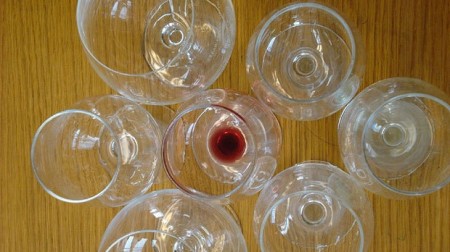Source: www.cancerresearchuk.org
Author: staff
More than half of the British public are unaware of the link between alcohol consumption and cancer, according to a survey from the Alcohol Health Alliance UK (AHA) (link is external).
The UK- wide poll found that just 47 per cent of people were aware of any connection between alcohol and the disease. But an overwhelming majority (83 per cent) would back further nutritional and health information on alcohol labelling.
Sarah Williams, Cancer Research UK’s senior health information officer, said: “Alcohol has long been a scientifically established cause of cancer, but there is surprisingly low awareness among the public of this link.
“And it isn’t just a risk for heavy drinkers; regularly drinking alcohol puts you at greater risk of seven different types of cancer, including breast and mouth cancer”
Alcohol is currently exempt from the EU legislation that makes it mandatory for food products and soft drinks to carry nutritional value information, despite alcohol being classed as a group 1 carcinogen by the World Health Organisation (link is external).
The AHA’s chair, Sir Ian Gilmore, says the lack of health information on many alcoholic products is “indefensible”.
“It’s not right that labelling is mandatory for a box of corn flakes but not for alcoholic products which can seriously harm health,” he said.
Gilmore urges the Government to start listening to public opinion on this issue rather than the demands of big businesses.
The results from the survey of 3077 people showed that nine in 10 (91 per cent) think that clarifying the health impacts of alcohol is important. But when challenged over their current knowledge, just under one in three (31 per cent) of people successfully acknowledged the links between alcohol and breast cancer.
This stretched to half of people being aware of the links in relation to mouth or throat cancer.
The AHA is calling for health labelling to be made a legal requirement for alcohol products. Its campaign is pushing for every alcohol product to clearly describe its nutritional, calorie and alcohol content as well as make it clear through labelling that the safest option for pregnant women is to avoid alcohol consumption entirely. Cancer Research UK supports the campaign for clearer labelling so everyone can make better choices about their drinking, said Williams.
“Cutting back on alcohol can help cut the risk, so you could try having more alcohol free days or making every other drink something soft,” she added.


Leave A Comment
You must be logged in to post a comment.